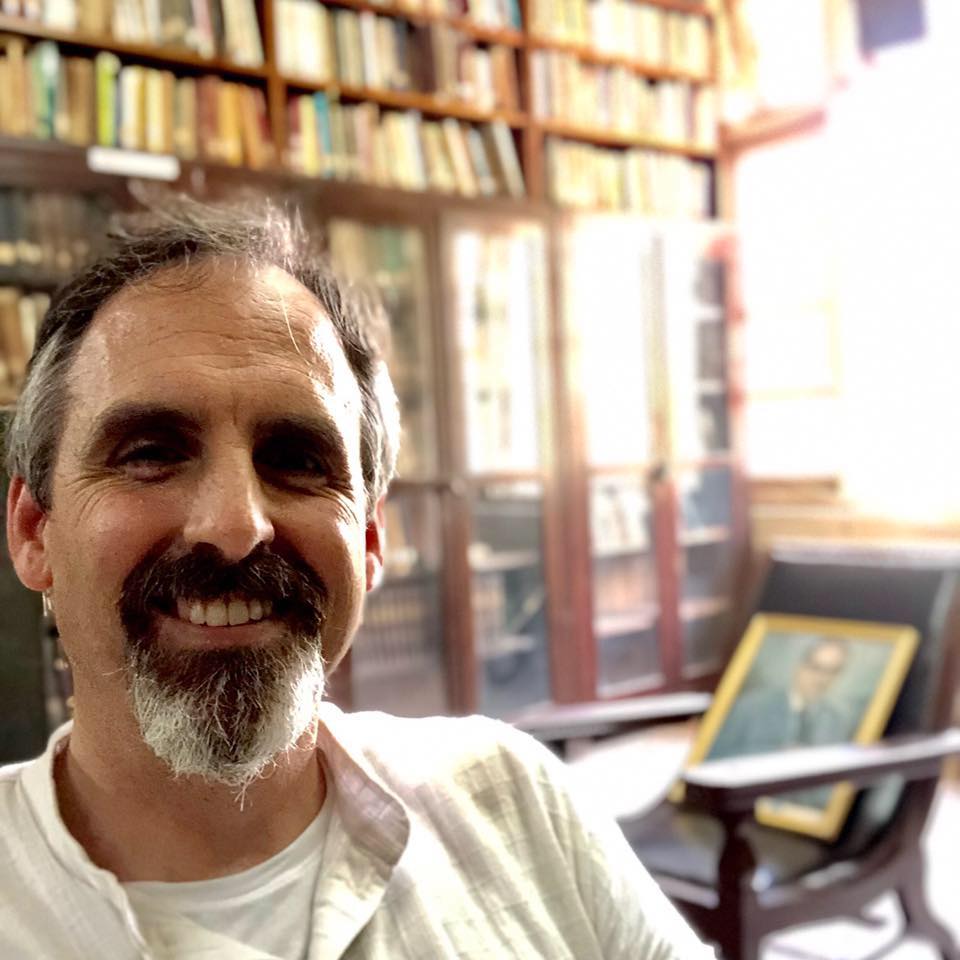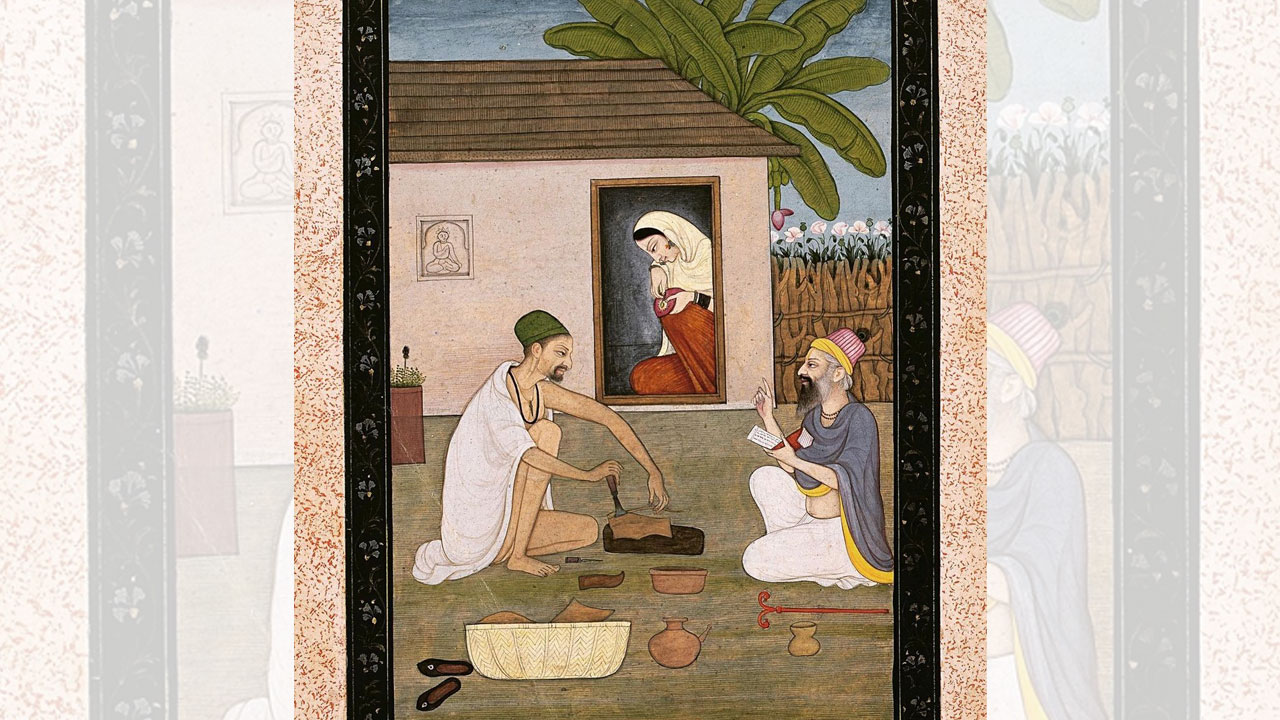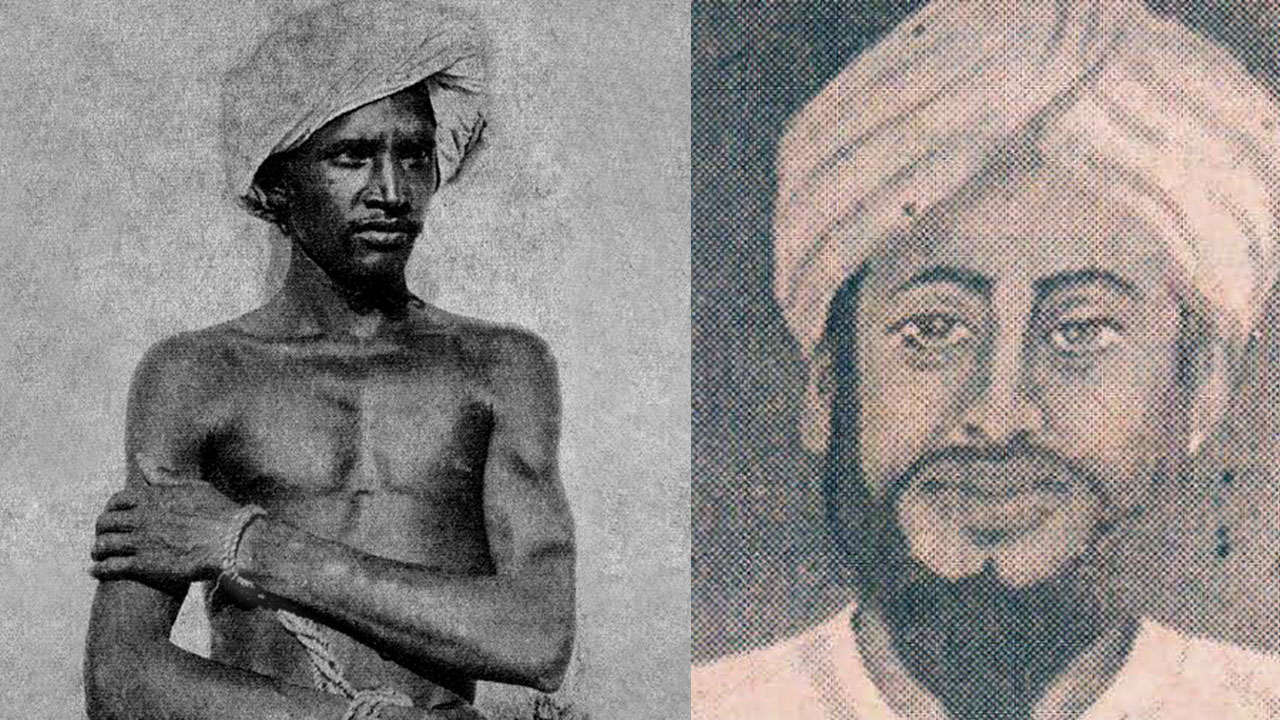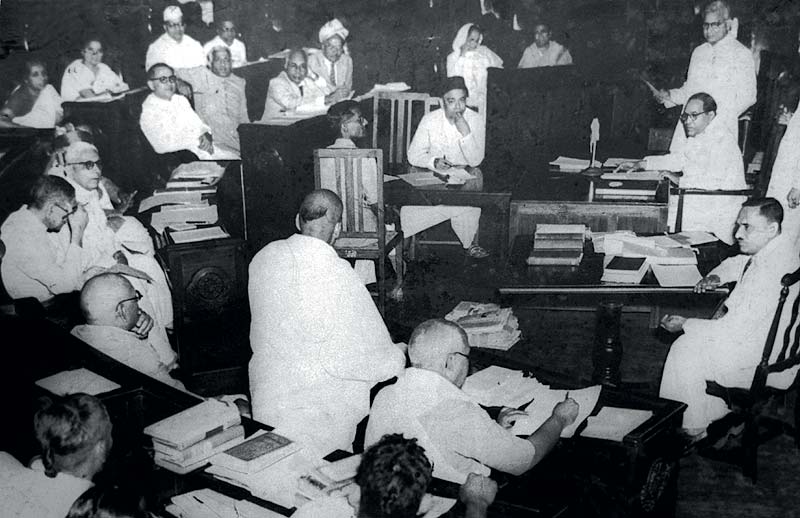Bhimrao Ambedkar is well known for his wide-ranging education. His time at Columbia University from 1913 to 1916 contained some of the most important experiences in his development as a thinker and scholar. Looking back at this time period in 1930, he’d recount that “The best friends I have had in my life were some of my classmates at Columbia and my great professors, John Dewey, James Shotwell, Edwin Seligman and James Harvey Robinson.”[1]
Recent biographies ranging from Aakash Rathore’s Becoming Babasaheb to Ashok Gopal’s A Part Apart have done a wonderful job surveying the extent of Ambedkar’s experiences in New York. But getting into the details of Ambedkar’s education is a daunting task. Why do I say this? For starters, what occurred in his many classes at Columbia University, London School of Economics, Gray’s Inn, and more is a black box. We know young Ambedkar went into those courses and heard something from these great professors, and then emerged a well-educated activist and budding leader. But what exactly he heard – and how he reacted to it – often is left out, or relegated to speculation on what he “must” have heard from certain teachers.
One of the challenges is in finding evidence of and for Ambedkar’s classroom experiences. In my recent book, The Evolution of Pragmatism in India, I have been fortunate to find and analyze multiple sets of lecture notes from John Dewey and Ambedkar and his classmates in an attempt to see what he heard from his professor Dewey and how it mattered in his life and work. To my knowledge, these are the only classroom records from specific courses that have been used to catalogue Ambedkar’s educational experiences. But what more can we say about his education? This is an interesting quest that will require the efforts of many scholars and historians, given the diversity of Ambedkar’s educational pursuits.
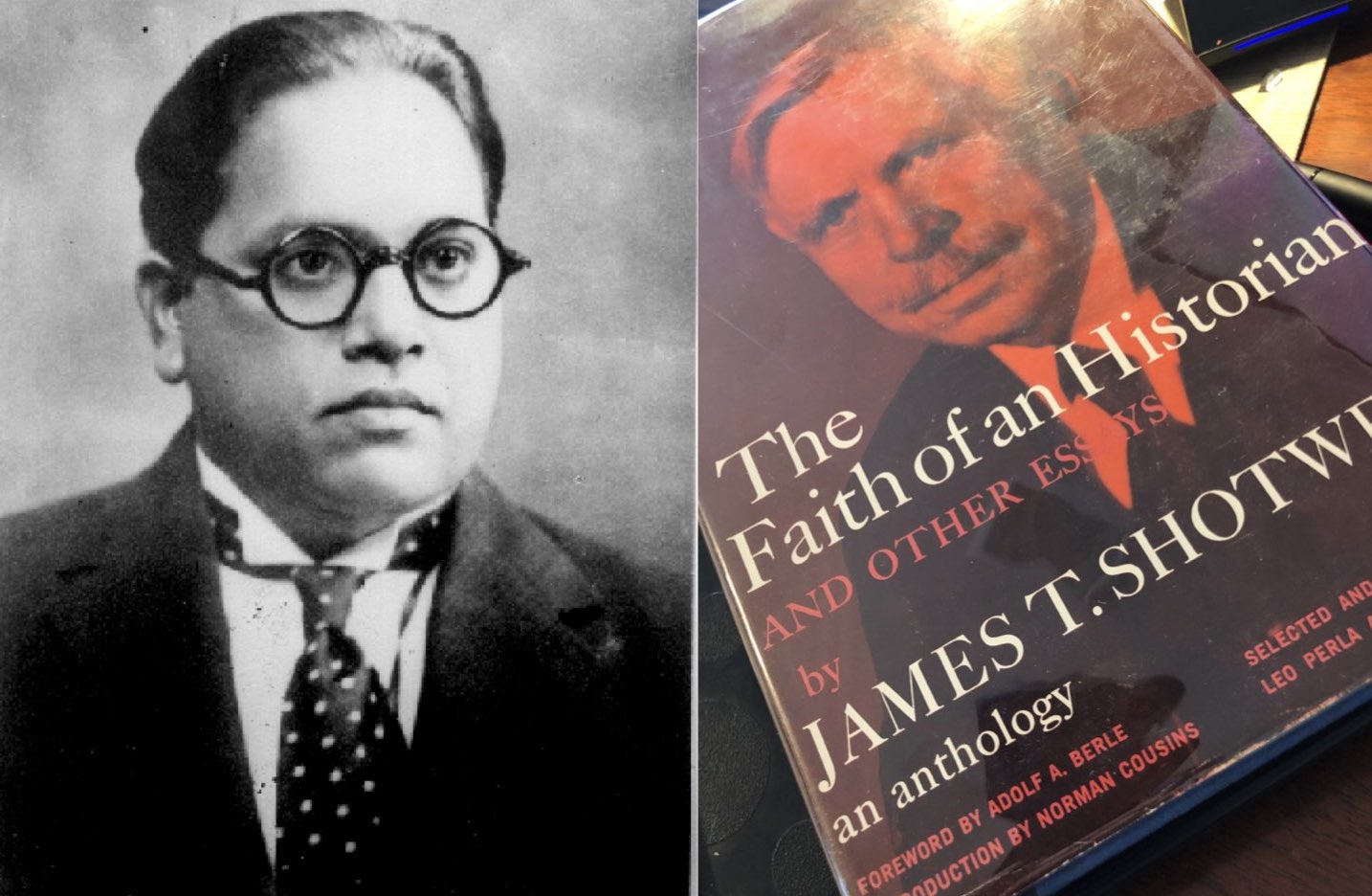
James Shotwell recalls Ambedkar
One of the names mentioned by Ambedkar in the 1930 Columbia Alumni News article, right after Dewey, was James T. Shotwell (1874-1965). Shotwell was a faculty member in history at Columbia University, a student of James Harvey Robinson. Both Robinson and Shotwell would be teachers of young Ambedkar, introducing him not only to specific topics in history but also the new trends in the methods of historical research. As this detailed accounting of his time at Columbia indicates, Shotwell grew increasingly interested in matters of world peace and international relations. Like Ambedkar, Shotwell could think about the locally practical and the globally ideal.
What about Ambedkar’s time in Shotwell’s classes? Ambedkar remembered his teacher, and as I have discovered, his teacher remembered him. Towards the end of his long life, Shotwell penned what he considered his most important work – The Long Way to Freedom (1960). The book travels through most continents and traditions in tracking freedom’s travails in history, including India’s independence movement.
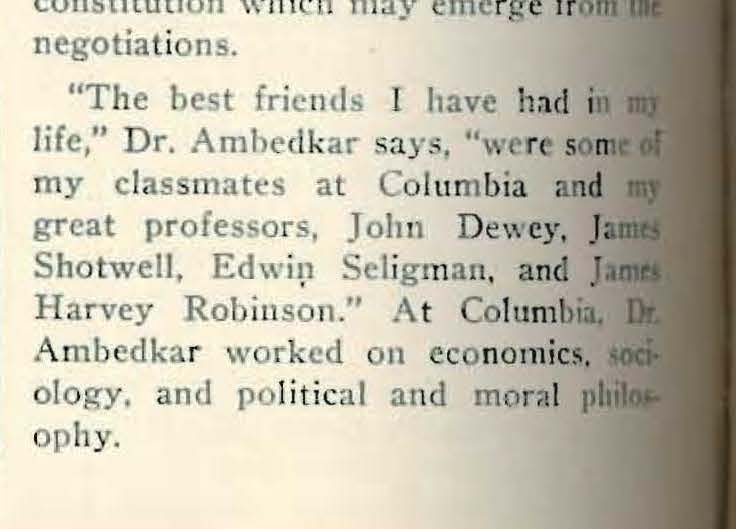
In the middle of a discussion of Gandhi and swaraj, Shotwell evokes the problem of untouchability: “mere political independence was not enough; there must be freedom from the hampering taboos also”. Gandhi was “born and raised under the Brahminical taboos,” Shotwell wrote, and he “remained convinced of the validity of the caste system as a framework for society”. Who was the counter to Gandhi when it came to engaging caste? Shotwell points to none other than his former student, “B.R. Ambedkar”.
Interestingly enough, Shotwell takes the space in an already-lengthy book to include a long footnote explaining who his former student was. Though his discussion of caste was fairly short, his biography of Ambedkar was long enough to be elucidating and revealing:
Dr. B. R. Ambedkar (Ph.D. from Columbia University, where he was a student of the author), the head of the Scheduled Castes Federation, the strongest organization of the untouchables, entered the Indian Cabinet as Law Minister and was the chairman of the committee of distinguished Indians who drafted the Indian Constitution which went into effect in January, 1950. As a student he used to insist strongly that the untouchables could get better treatment from the Brahman-controlled native government. His experience in the government confirmed him in this conviction, and he resigned from the Cabinet in October, 1951, having found “the same old tyranny, the same old oppression, the same old discrimination which existed before, but perhaps in a worse form.” In World War II he fought an election on the platform of direct alliance with the Western powers, and lost. He never returned to power, and died in 1956.[2]
In this footnote, Shotwell does a decent job capturing who Ambedkar was – at least politically. He reveals that he knew of and followed his former student’s exploits in politics and was knowledgeable about the conditions of Ambedkar’s resignation from Nehru’s government.
Particularly revealing is the line, “As a student he used to insist strongly that the untouchables could get better treatment from the Brahman-controlled native government.” What this shows is that even as a student, Ambedkar was interested in activism and efforts against caste oppression, so much so that one of his professors remembers this about his student days. It also supports a newly discovered recollection from a fellow student I engage in my book that recalls young Ambedkar as dedicated to eradicating caste oppression. We don’t know exactly how Ambedkar interacted with his professors and classmates in class, but we can see that he was vocal enough that his professors (such as Shotwell) recalled what he stood for and what causes he was interested in.
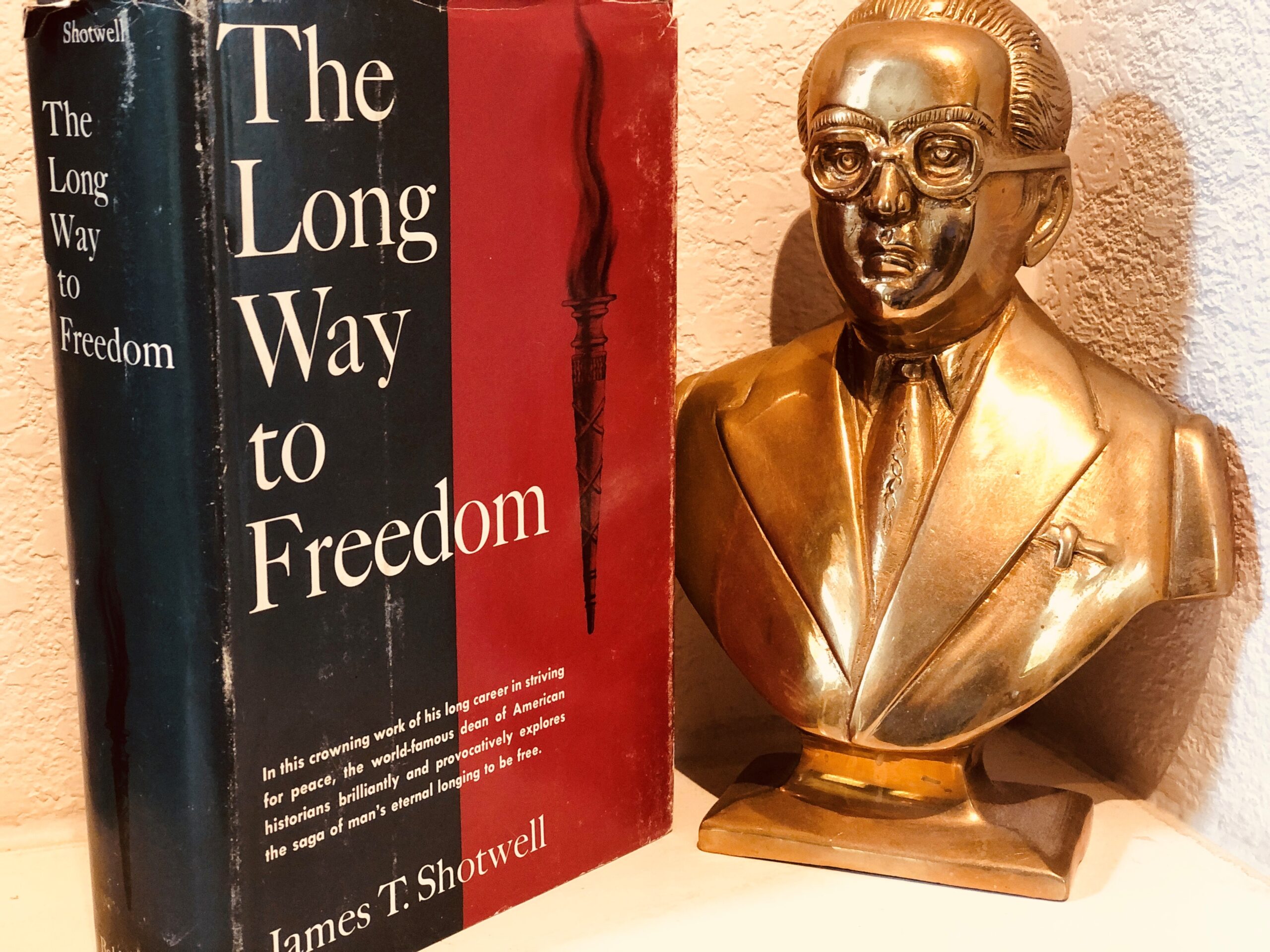
What might Ambedkar have learnt from Shotwell?
The question must occur to many – what did Ambedkar learn from Shotwell, a teacher who clearly remembered him? The answer to this question is unclear, since we lack (for now) any syllabi, notes, lecture outlines, or other materials that get us into Shotwell’s classes. Using the wonderful resource of baws.in, we can ascertain that Ambedkar made no mention of his teacher in the available English language volumes. But we can sketch what Ambedkar might have been exposed to using what we can marshal, and perhaps others can further fill in this picture of Shotwell and Ambedkar.
Putting together the information contained in Ambedkar’s transcripts and the Columbia University Bulletins from 1913-1916 (containing course information such as title, timing, and brief description), we can see what courses Ambedkar took from Shotwell.[3] In the academic year of 1914-1915, Ambedkar took a sequence of the following two courses:
History 155-156: Origins European Society: Soc. & Indust., Mod. Engl. [Mondays & Wednesdays 3:10PM; Room 615k], James T. Shotwell, Ph.D. (Professor of History, Columbia)
155: Origins of European Society [Fall 1914]
Deals with evolution of European society, with especial emphasis upon history of work and of common things of daily life. Begins with survey of prehistoric man, the stone, bronze and early iron ages, rise of agriculture, ancient city states, commerce and slavery. Passes in review early German village life, feudalism, management of manorial estates, rise of European cities, emergence of capital and originals of national state.
156: Social and Industrial History of Modern England [Spring 1915]
Begins with short survey of Commercial Revolution which changed centre of European society from Mediterranean to North. Treats of influx of gold and silver from America and the business aspects of modern politics. Industrial Revolution then taken up in detail, great inventions and rise of the factory system. Considers advent of industrial proletariat and includes survey of popular movements toward reform, social legislation, Trade Unions, Chartism and historical setting of Socialism.
He also took the following advanced course from Shotwell in the spring of 1915, one with a very esoteric subject matter (at least as far as young Ambedkar was concerned):
History 226: Europe in the 12th & 13th Centuries [Full Course; Wednesdays 4:10 PM & 5:10 PM; Room 402L], James T. Shotwell, Ph.D. (Professor of History, Columbia)
Research course open to specially qualified students.
In the academic year of 1915-1916, Ambedkar took only one course from Shotwell (in the spring of 1916, his final semester in residence at Columbia):
History 223: Primitive Institutions in European History [Primitive Institutions, Paganism and Christianity; Mondays 8-10 PM; Room 106L], James T. Shotwell, Ph.D. (Professor of History, Columbia)
Deals with persistence in European institutions, customs, laws and religions of phenomena of primitive society directly concerned with magic and taboo. Survey of antique popular religion, mystery cults, persecutions, both pagan and Christian, and origins of medieval church.
We can see that Shotwell exposed young Ambedkar to a range of topics in European history, from topics with obvious impact (religious institutions) to important developments that may be overlooked (industrial and technological advances, for instance). Short of digging up his lecture notes or syllabi, we don’t have firm assurances of what exactly Ambedkar heard in these courses.
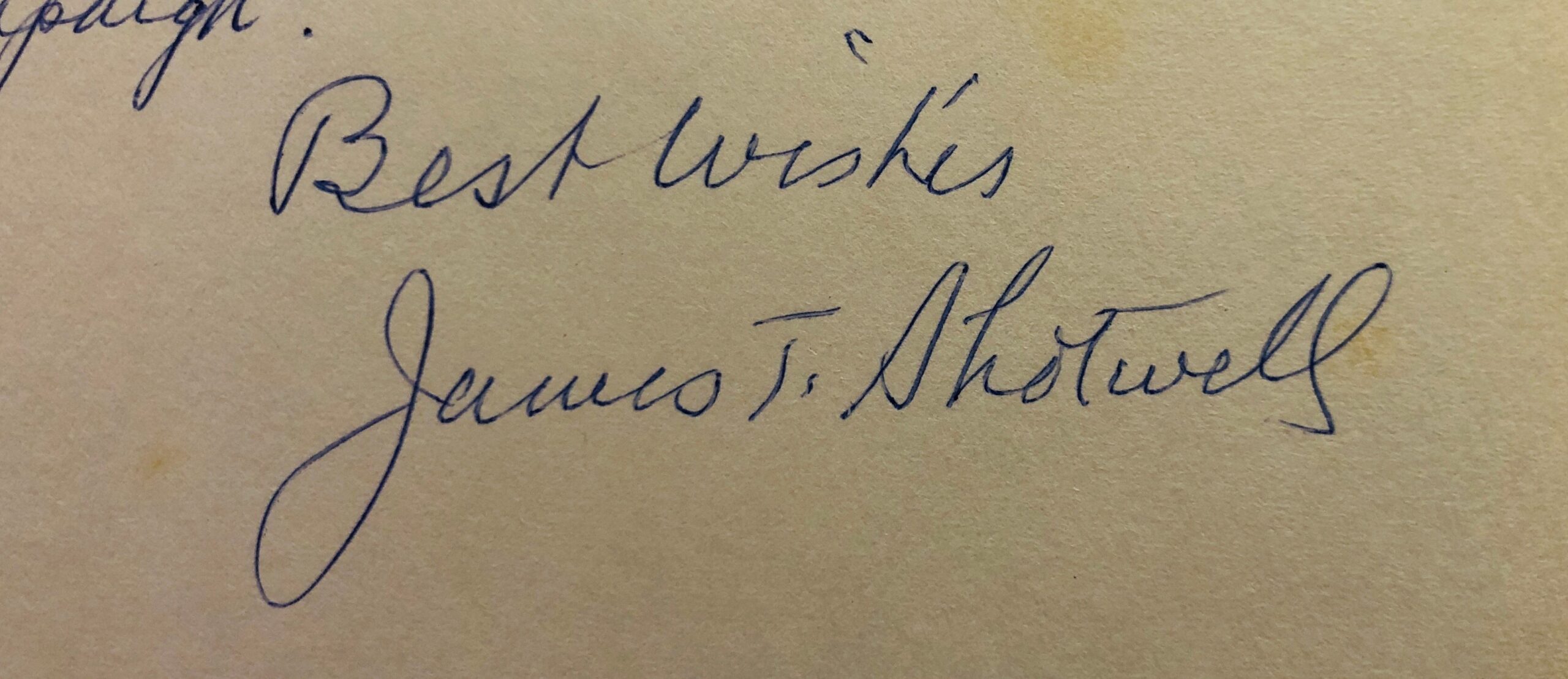
Perhaps he sensed one of the themes of Shotwell’s approach to history, one he imbibed from Robinson – that history is the study of the past in light of present needs. Or perhaps he gathered another theme from his professor’s pedagogy, one which Shotwell would reveal later in his life that he learnt from his advisor at Columbia as well – “we learned under Robinson to be distrustful of generalizations.”
This scepticism about the veracity of generalized, and simple, explanations grounded Shotwell’s rejection of Marx’s thesis of the economic determination of history and historical change. Later in his life, Shotwell would explain this reaction: “Materialism and economics, while more promising because more earthly [than theological or metaphysical approaches], cannot be pressed beyond a certain point. Life itself escapes their analysis. The conclusion is this: that we have two main elements in our problem which must be brought together – the psychic on the one hand, the material on the other.”[4] Shotwell surely impressed on students like Ambedkar the idea that our most workable “truths” would come with the integration of the mental and the material: “Now until psychology and the natural and economics sciences,” Shotwell continues in his autobiographical remarks, “shall have been turned upon the problem, working in cooperation as allies, not as rivals, will history be able to give an intelligent account of itself.”[5] Ambedkar, as evidenced through his own engagements with the psychology of caste and the political and economic means of resisting it, would agree with non-reductive and pluralistic courses of action.
We can see that Shotwell’s approach to history was integrative, meliorative, and non-reductive. History was a particularized object that called for general stories or explanations. These stories ought to be useful for us in the present. Shotwell surely imbued his courses with some of this historical pragmatism, and Ambedkar probably saw the value in it.
Shotwell, Ambedkar, and Pragmatic Cosmopolitanism
One of the fascinating characteristics of Ambedkar’s fight against untouchability and caste oppression was its global inflections. He clearly wanted to expand the fight against caste by forging bridges with those international audiences interested in Buddhism or those fighting similar scourges like racism (see his correspondence with W.E.B. DuBois). We must never forget that Ambedkar’s “Buddhist Bible” – the magisterial Buddha and His Dhamma (1957) published shortly after he died – was composed and published in English and included references to Buddha being an answer to Karl Marx and communism. For Ambedkar, Buddhism was both an answer to caste oppression and the world’s hunger for a more satisfying political system. Buddhism was democratic and it could counter the excesses of the communism Ambedkar saw plaguing the world.
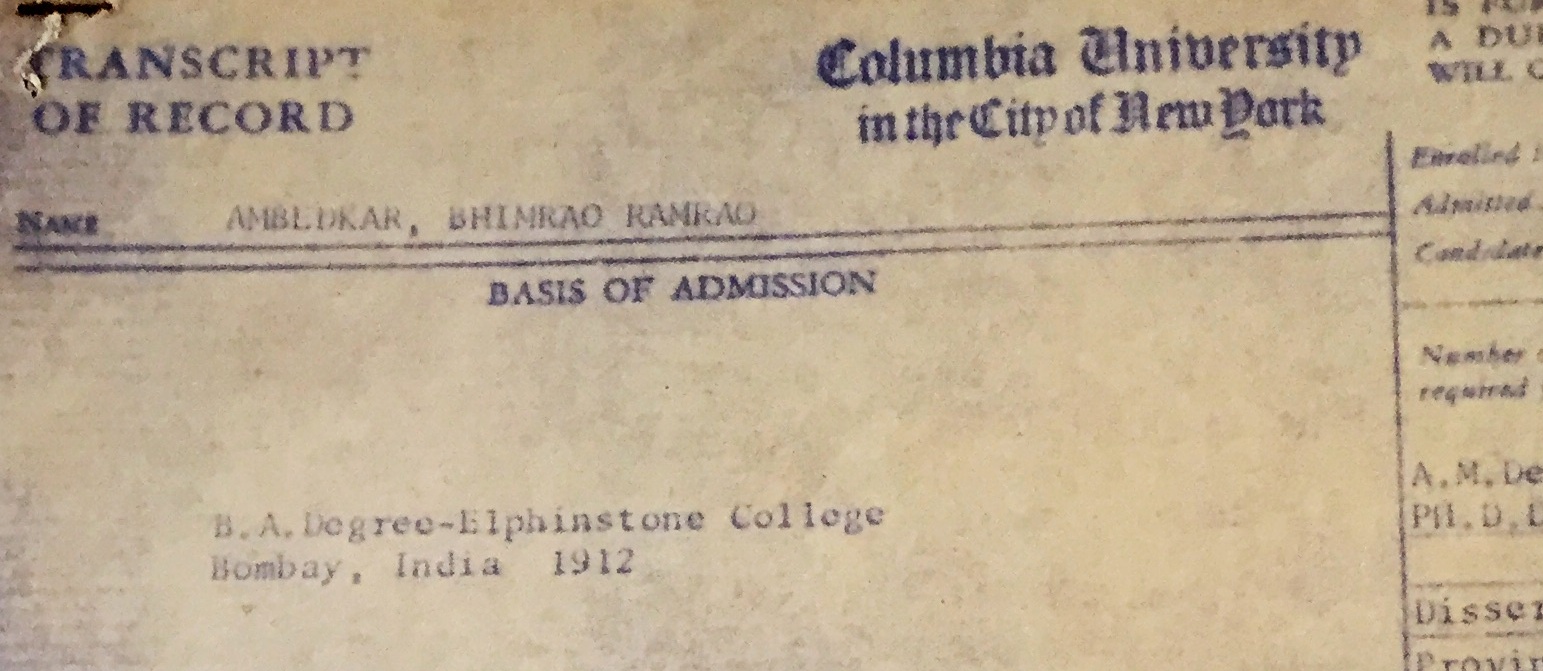
Shotwell also possessed this sort of global outlook. His study of history, while grounded in present needs, was oriented toward forging a better, and more free, present. Indeed, freedom that could last was the pressing need of history as he saw the matter. In capturing what Shotwell meant for the study of history and for Columbia, Lisa Anderson summarizes this global outlook clearly:
James T. Shotwell represented the first generation of genuinely cosmopolitan American policy intellectuals … Shotwell’s combination of scholarly enthusiasm, pragmatic engagement in the world, and abiding optimism, his conviction that social scientists should deploy their learning to public purposes, his faith that human intervention might improve the human condition, and his ability to “see the world as a whole” became hallmarks of Columbia’s study of international relations.[6]
This holistic and cosmopolitan view was intrinsically linked with a sort of optimism. Shotwell’s optimism was realistic – it honestly probed the nature and extent of the problems facing nations and cultures – but it saw the room for hope that something better could be constructed. While his aims later in his life were at the level of international peace-building institutions like the United Nations, perhaps this combination of hopeful and cosmopolitan thinking impressed young Ambedkar in its early vestiges in his courses with Shotwell.
Like Shotwell, Ambedkar was realistic about the problems he faced but optimistic about the solutions he must push for with his efforts. The annihilation of caste required political democracy grounded in the mental habits of social democracy. Both of these thinkers’ battles were ones of nations, cultures, and groups, but they also were also struggles of minds and fears. In the closing stanza to his poem, “Is it the Dawn,” Shotwell struck such a note, which resonated not only with his efforts in the international arena, but also with Ambedkar’s own monumental struggles:
Blind not the mind with craven fears;
Behind the shadows shines the sun,
Another dawning million years
Has just begun.[7]
Perhaps something like the pragmatic optimism this poem contained came rushing back to Ambedkar when he recalled his professor Shotwell, alongside other optimistic and pragmatic thinkers like his teacher John Dewey.
[1] Columbia Alumni News, 19 December 1930, 12.
[2] James T. Shotwell, The Long Way to Freedom (Indianapolis: Bobbs-Merrill, 1960), 514
[3] I am working from the transcripts issued by Columbia University on March 24, 1965, and that are now preserved in the Khairmode Papers at the University of Mumbai.
[4] James T. Shotwell, The Faith of an Historian and Other Essays (New York: Walker and company, 1964), 85
[5] Ibid., 85
[6] Lisa Anderson, “James T. Shotwell: A Life Devoted to Organizing Peace,” Columbia Magazine, December 8, 2005, https://magazine.columbia.edu/article/james-t-shotwell-life-devoted-organizing-peace.
[7] James T. Shotwell, Poems (New York: Simon and Schuster, 1953), 5.
Forward Press also publishes books on Bahujan issues. Forward Press Books sheds light on the widespread problems as well as the finer aspects of Bahujan (Dalit, OBC, Adivasi, Nomadic, Pasmanda) society, culture, literature and politics. Contact us for a list of FP Books’ titles and to order. Mobile: +917827427311, Email: info@forwardmagazine.in)
